
The global food system is at a crossroads, facing unprecedented challenges driven by climate change, the COVID-19 pandemic, and political instability. Nowhere is this more evident than in Africa, where food systems are deeply vulnerable to climate change, impacting millions of livelihoods across the continent. In this context, the concept of a ‘just food systems transition’ is gaining traction in development programmes and policies as a way to address these multiple challenges. However, there is still no consensus for whom this justice should be realized, and how it should be enacted. Specifically for youth who both bear the brunt of inequalities and climate change impacts and are the ones driving a food systems transition.
To deepen understanding of the drivers and barriers to a just food systems transition in Africa, INCLUDE is launching a new research programme: Green Jobs for Youth in a Just Food Systems Transition in Africa.”
You can find the foundation paper for this research programme here.
The call for proposals and application guidelines can be found in English and French.
Research Focus and Objectives
Through country-specific case studies, this programme seeks to develop a contextualized understanding of how food systems in Africa can transition towards greater sustainability, equity, and resilience. The call for country case studies will be open to researchers and institutions committed to exploring the political economy dynamics and inclusive development implications of this transition, particularly drivers and barriers to youth employment. The programme will explore key questions such as:
- How can a just food systems transition contribute to green jobs for youth in Africa?
- How do national and international institutional and regulatory frameworks shape opportunities for young people in the food systems transformation?
- How are the climate justice dimensions captured in national efforts to transform the food system?
- How can food systems transition strategies in Africa take advantage of digital technologies to accelerate youth employment?
- How do gender disparities impact access to opportunities in green agriculture?
Meaningful stakeholder engagement, particularly involving youth and young women, is essential to the research process, fostering inclusive, equitable, and sustainable transitions in Africa’s food systems. We encourage all interested parties to apply, with a special invitation to youth-led organizations and African knowledge institutions. Applications are welcome from both individuals and organizations. The lead researcher has to be African or of African descent (meaning they are born in Africa and have lived experiences on the continent).
Please note that the deadline for the submission of questions is 9 December 2024, questions can be submitted in English or French.
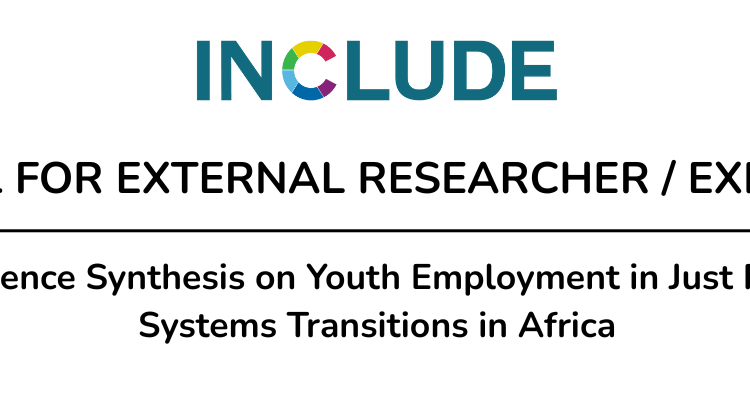
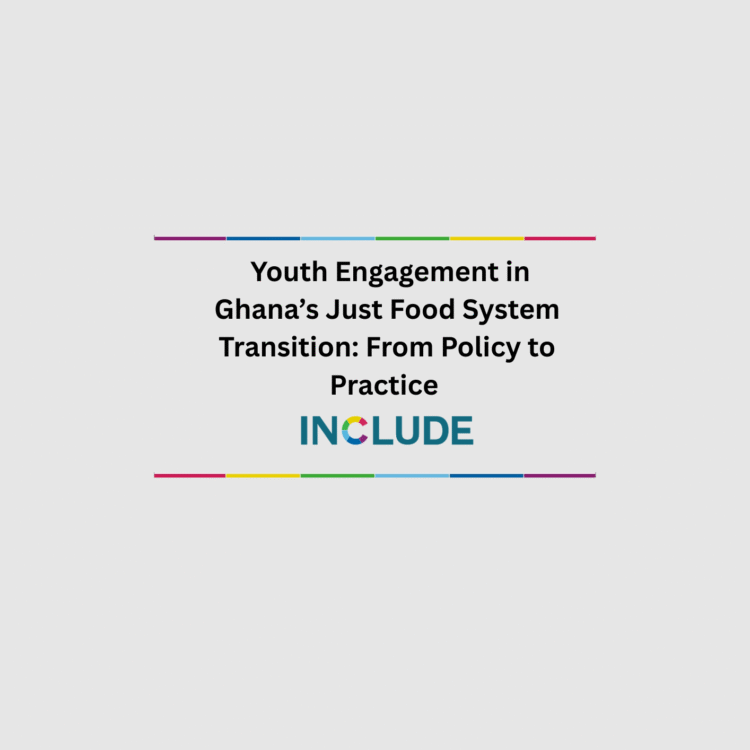
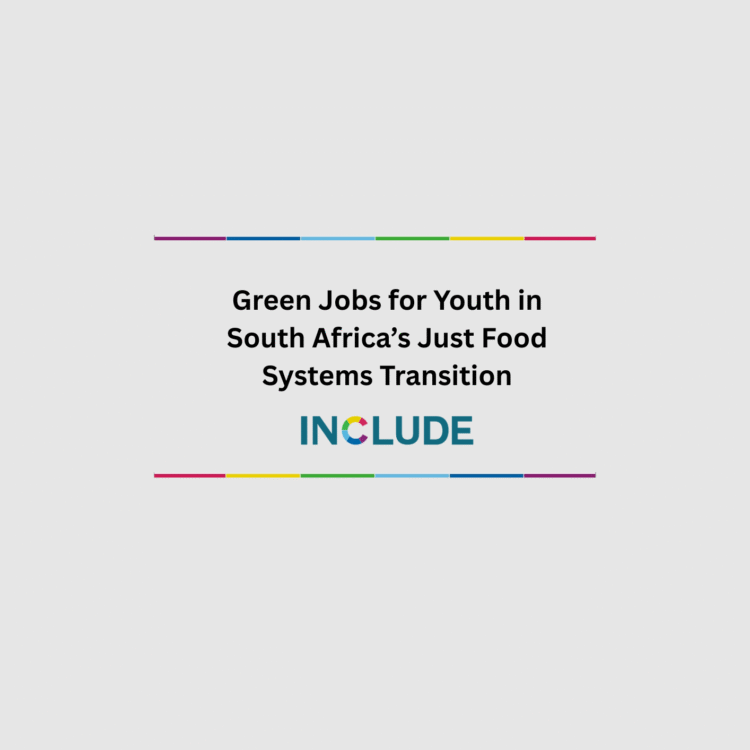
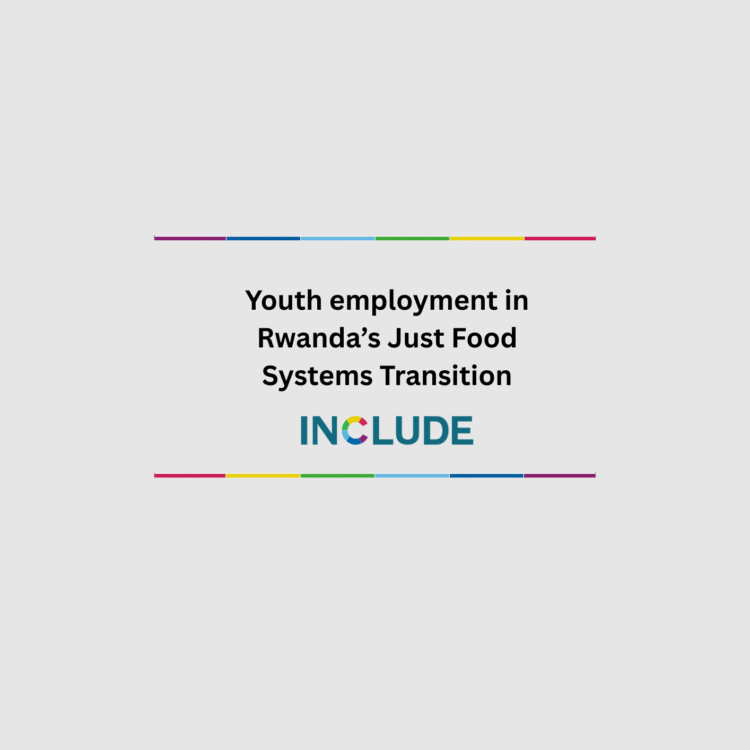
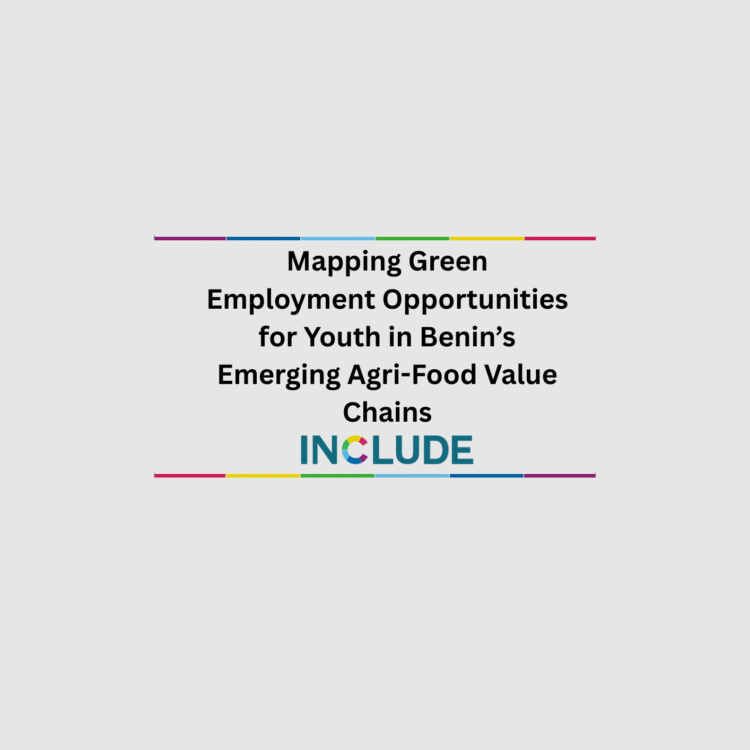
The climate change will have and give much opportunity to our ecosystem we will have good air , renewable energy , food ,good health as also a green job for young generation .
Thanks very much for offering this opportunity to individuals and organizations. This shall make an impactful to bother individuals and organizations because in Africa Green Jobs for Youth in a Just Food System Transition in Africa is not there that’s why you support will have a big place in Africa
Thanks.
To my mind, this call is a crucial initiative to empower African youth with green jobs while ensuring a fair and sustainable transition in food systems.
Am excited to receive your email
This is an excellent call and the results will surely give pointers as to what should be done to include youth in green jobs created through sustainable transition in food systems
Ce thème est particulièrement pertinent compte tenu des défis économiques, sociaux et environnementaux auxquels le continent est confronté. Une transition vers des systèmes alimentaires durables et résilients peut offrir de nombreuses opportunités pour les jeunes en Afrique, à condition d’intégrer des approches adaptées aux réalités locales et aux besoins du secteur agricole.
This is a great initiative to empower the youths on Africa. This is appreciated
This is a great opportunity and the findings will form bases of inclusive just food systems transition in Africa for youth in terms of green jobs.
Addressing issues related to food justice in Africa requires transformative MEL (monitoring, evaluation, and learning ) perspectives by analyzing the contextual implications of food systems in Africa.
Ingénieur agronome intéressé par toutes formations en liens avec l’agriculture ou l’environnement
We deeply appreciate this invaluable opportunity. Through significant and collaborative investments in Research and Development, Africa has the potential to address the pressing challenges of anthropogenic climate change and political instability. By leveraging innovative solutions and promoting green jobs, particularly among youth, Africa can create pathways for a just and sustainable transition in food systems. We commend and thank you for your commitment to advancing these critical initiatives
Eagerly to partner with you
1. How can a just food systems transition contribute to green jobs for youth in Africa?
A just food systems transition addresses inequalities by integrating sustainability and inclusivity in agriculture, processing, and distribution. By prioritizing climate-smart agricultural practices, sustainable supply chains, and eco-friendly innovations, the transition creates opportunities for green jobs in areas like renewable energy-powered farming, organic produce markets, and agroecology. Youth can find employment in roles such as climate-resilient farming, agro-tech innovation, and sustainable food logistics, contributing to a greener economy while tackling food insecurity and unemployment. Training and capacity-building initiatives tailored for youth ensure they are equipped with skills to thrive in these emerging sectors.
2. How do national and international institutional and regulatory frameworks shape opportunities for young people in the food systems transformation?
National frameworks, such as youth policies and agricultural development strategies, shape access to land, financing, and technology for young people. Favorable regulations can incentivize youth entrepreneurship in sustainable agriculture through subsidies, tax breaks, and access to microloans. International frameworks, including the African Union’s Agenda 2063 and the UN Sustainable Development Goals, set benchmarks for inclusivity and sustainability. They encourage partnerships, investments, and policy coherence between nations, opening pathways for youth-driven innovations and cross-border collaborations. However, weak institutional capacity and regulatory gaps often hinder implementation, underscoring the need for accountability and youth participation in policy-making processes.
3. How are the climate justice dimensions captured in national efforts to transform the food system?
Climate justice in national food system transformations is reflected through policies that prioritize marginalized communities disproportionately affected by climate change, including youth and smallholder farmers. Initiatives like climate-resilient agriculture, crop insurance, and disaster risk reduction programs demonstrate a commitment to equity. Nationally Determined Contributions (NDCs) under the Paris Agreement often include targets for sustainable agriculture and ecosystem restoration, emphasizing the role of vulnerable populations. However, gaps remain in ensuring equitable access to resources, requiring stronger youth advocacy to embed climate justice principles fully into national policies and programs.
4. How can food systems transition strategies in Africa take advantage of digital technologies to accelerate youth employment?
Digital technologies, including precision agriculture, e-commerce platforms, and blockchain for supply chain transparency, can revolutionize food systems while creating jobs for tech-savvy youth. Mobile apps provide real-time data on weather, soil health, and market prices, enhancing productivity and decision-making for young farmers. E-learning platforms and online marketplaces expand access to agricultural training and new markets, respectively. Additionally, digital technologies can streamline logistics and reduce post-harvest losses, generating employment in digital supply chain management. Governments and stakeholders must invest in digital infrastructure and skills development to maximize these opportunities for African youth.
5. How do gender disparities impact access to opportunities in green agriculture?
Gender disparities, such as unequal land ownership rights, limited access to credit, and cultural biases, restrict young women’s participation in green agriculture. Women often face barriers to obtaining essential resources like farming inputs, training, and technology, hindering their ability to engage in climate-smart agricultural practices. Gender-responsive policies, such as targeted financial support, mentorship programs, and the inclusion of women in decision-making processes, are critical to bridging this gap. Addressing these disparities not only ensures equity but also unlocks the untapped potential of young women, driving innovation and resilience in green agriculture.
Une initiative formidable qui contribuera à l’émancipation des jeunes africains pour revelutionner un climat verte
Très belles contributions. Cela montre la qualité de l’offre et l’intérêt que les participants lui accordent.
C’est l’Afrique qui gagne.
I am very interests this job.